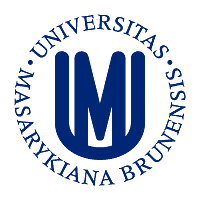The Seventh International Workshop on Static Analysis and Systems Biology (SASB 2016)
SAS workshop, 7 September 2016, Edinburgh, UK
Contact:
sasb2016@easychair.org



This event is supported by The Scottish Informatics & Computer Science Alliance (SICSA).
Objectives
SASB is a one day workshop that aims at promoting discussions and collaborations at the intersection inbetween the specific field of formal methods covering modelling languages and static analysis, and the following fields: (i) systems biology targetting a system-level understanding of biological systems, (ii) synthetic biology targetting functional modifications to naturally occurring systems, (iii) molecular programming and development of engineered biological and chemical systems.
The workshop targets biological networks and executable models of biological systems and molecular devices, focusing on their formal specification and static analysis. A special emphasis is given to rule-based or process-algebraic languages that have the advantage of compact representation and provide a robust tool for systems and synthetic biology as well as a good base for molecular programming languages.
Since the state space explodes combinatorially with number of possible states of biochemical substances, static analysis allows investigation of important features from a model without its exhaustive execution. In particular, it allows to pre-process molecular programs and optimise their implementation in DNA; ease characterization of the behaviors of a model; abstractions that prevent a full exploration of the potential concrete behaviors; model reductions, that decrease the dimension of a model while preserving important behaviors; characterization of dynamical properties with respect to the topology of the model; etc. All these features empower and strengthen applicability and efficiency of dynamical analysis and verification.
Scope
The program of SASB 2016 will consist of invited talks, oral-only presentations and presentations of refereed papers. Work-in-progress and tool presentations will be organised at the poster session. Contributions are welcome on all aspects about modelling languages and techniques employing static analysis targetting natural biological systems and specification, design and verification of engineered biological and chemical systems, including, but not limited to
- static analysis frameworks and tools,
- equivalences and equivalence checking techniques,
- model reduction and decomposition techniques based on static analysis,
- state space compaction based on static analysis,
- links between topology and dynamics,
- constraint-based and stoichiometric analysis,
- languages for compact description of biological models,
- formalisms for description of biological networks,
- programming languages for molecular devices,
- static analysis in verification of molecular devices design,
- standards for models and their annotation,
- case studies and method applications,
- informal methods (that could be candidate to formalization).
Invited Speakers
- Patrick Yizhi Cai, The Cai Lab, School of Biological Sciences, University of Edinburgh, UK
- Jane Hilston, School of Informatics, University of Edinburgh, UK
- Eugenio Cinquemani, INRIA Grenoble - Rohne-Alpes, France
Venue and Registration
In 2016, the workshop will take place in Edinburgh, Scotland.
- Registration (select Workshops only if you do not plan to stay at the hosting SAS conference);
- detailed information for venue, accomodation and collocated events.
Previous edition
- The first edition held in Perpignan in September 2010. The post-proceedings are available at: http://www.sciencedirect.com/science/journal/15710661/272
- The second edition held in Venice in September 2011. The post-proceedings are available at: http://www.sciencedirect.com/science/journal/15710661/284
- The third edition held in Deauville in September 2012. The post-proceedings are available at: http://www.sciencedirect.com/science/journal/15710661/313
- The fourth edition held in Seattle in June 2013. The post-proceedings are in preparation.
- The fifth edition held in Munich (Germany) in September 2014. The post-proceedings are available at: http://www.sciencedirect.com/science/journal/15710661/316.
- The sixth edition held in Saint-Malo (France) in September 2015.
Important Dates
Contributions
| Paper Submission Deadline (paper) |
|
| Paper Notification | 10th August 2016 |
| Poster and Oral Presentation Submission | 12th August 2016 |
| Poster and Oral Presentation Notification | 15th August 2016 |
Workshop
| Workshop Date | 7th September 2016 |
Program
8:55-9:00: Opening
9:00-10:00: Invited Talk
- Jane Hillston. Dealing with Uncertainty in Formal Models of Biological Processes
10:30-11:50: Full Contributions
- Jerome Feret and Kim Quyen Ly. Reachability analysis via orthogonal sets of patterns
- Pedro Varela, Ines Lynce, Vasco Manquinho, Claudine Chaouiya and Pedro T. Monteiro. SAT-based identification of stable states in composed Boolean regulatory networks
- Célia Biane, Franck Delaplace and Tarek Melliti. Abductive Network Action Inference for Targeted Therapy
- Juraj Kolčák, David Šafránek, Stefan Haar and Loïc Paulevé. Unfolding of Parametric Logical Regulatory Networks
11:50-12:00: Oral-Only Contribution
- Diana-Elena Gratie. Extended Composition Colored Petri Nets for Model Refinement
Lunch Break
13:30-14:30: Invited talk
- Patrick Yizhi Cai. Synthetic Genomics: from genetic parts to genomes
14:30-14:50: Full Contribution
- Ricardo Honorato-Zimmer, Andrew Millar, Gordon Plotkin and Argyris Zardilis. Chromar, a rule-based language of parameterised objects
14:50-15:00: Oral-Only Contribution
- Luca Cardelli, Mirco Tribastone, Max Tschaikowski and Andrea Vandin. Quantitative Abstractions for Continuous Models of Biological Systems
Coffee Break
15:30-16:30: Invited talk
- Eugenio Cinquemani. Inference of regulatory networks from time-series reporter gene data: The case of promoter regulation in the E.coli motility network
16:30-16:50: Full Contribution
- Guillaume Terradot, Andrea Weisse and Vincent Danos. Survival of the Fattest: The trade-offs underlying the evolution of storage
16:50-17:00: Oral-Only Contribution
- Ken Chanseau Saint-Germain and Jerome Feret. Conservative numerical approximations of the differential semantics in rule-based models
17:00-18:00: Poster Session
18:00: Reception & Discussion (joint with other workshops)
Organizers
Program Co-Chairs
| Guido Sanguinetti | School of Informatics, University of Edinburgh; Edinburgh, UK |
| David Šafránek | Faculty of Informatics, Masaryk University; Brno, Czech Republic |
Program Committee
| Reka Albert | Pennsylvania State University, USA |
| Gulio Caravagna | University of Edinburgh, UK |
| Luca Cardelli | Microsoft Research, Cambridge, UK |
| Claudine Chaouyia | IGC, Oeiras, Portugal |
| Eugenio Cinquemani | IBIS, INRIA Grenoble, France |
| Vincent Danos | École Normale Supérieure, CNRS, France |
| François Fages | INRIA Rocquencourt, France |
| Jérôme Feret | École Normale Supérieure, Inria, France |
| Vashti Galpin | University of Edinburgh, UK |
| Jane Hilston | University of Edinburgh, UK |
| Gethin Norman | University of Glasgow, UK |
| Nicola Paoletti | University of Oxford, UK |
| Loïc Paulevé | CNRS/LRI, Université Paris-Sud, France |
| Ion Petre | Åbo Akademi Turku, Finland |
| Tatjana Petrov | IST, Austria |
| Andrew Phillips | Microsoft Research, Cambridge, UK |
| David A. Rosenblueth | Universidad Nacional Autonoma de Mexico, Mexico |
| Thomas Sauter | University of Luxembourg, Luxembourg |
| Chris Thachuk | California Institute of Technology |
| Mirco Tribastone | IMT Institute for Advanced Studies Lucca, Italy |
| Paolo Zuliani | Newcastle University, UK |